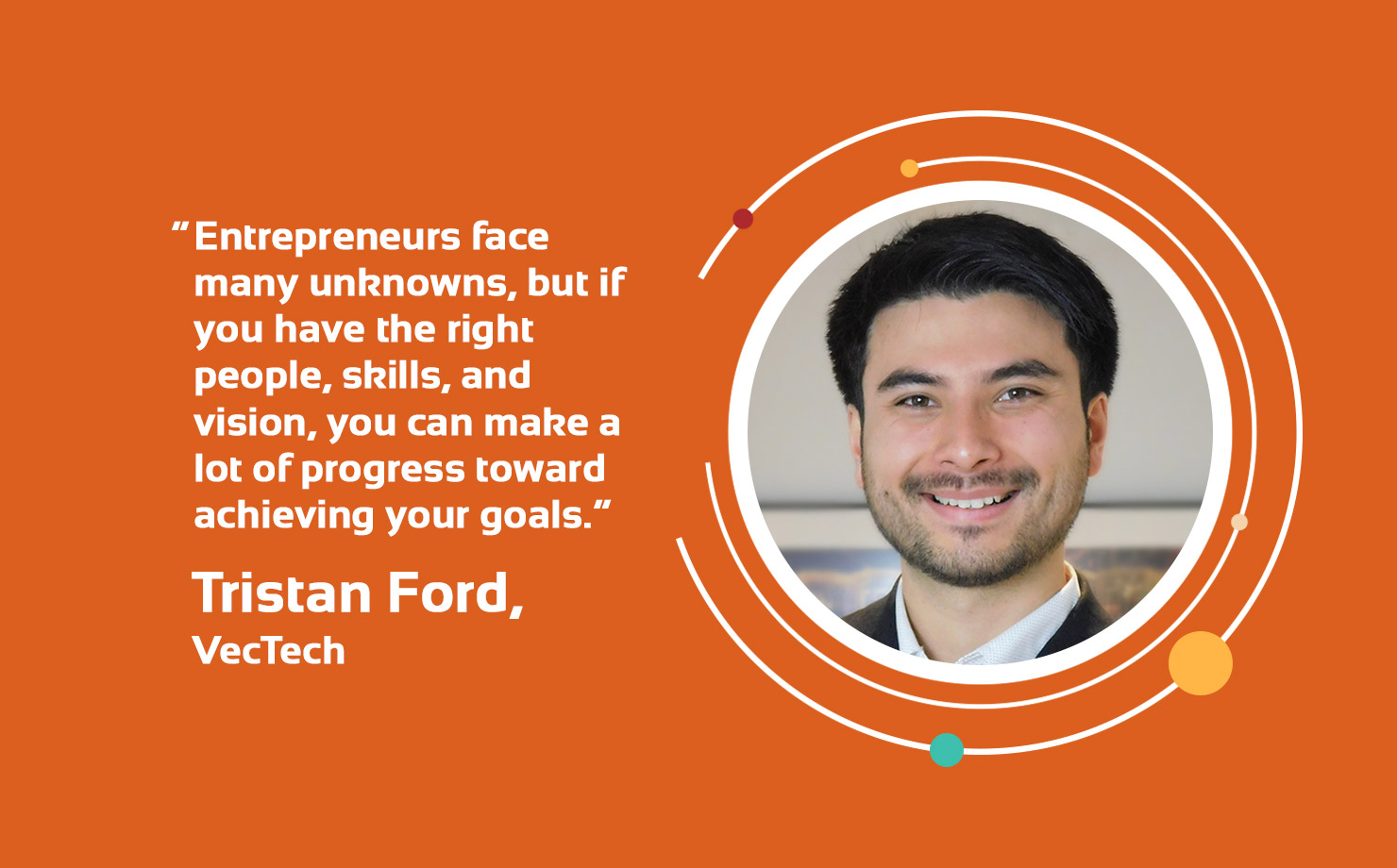
An innovator’s journey from idea to market can be challenging and complicated—but also rewarding. Each month we explore how inventor-entrepreneurs in our network have evolved since they started their journey. Our goal is to share key learnings and best practices with early-stage science and technology inventors embarking on a path of innovation and entrepreneurship. Our latest spotlight is with Tristan Ford, co-founder of 2019 E-Team VecTech. Utilizing an advanced computer vision system, VecTech technology can rapidly and accurately identify high-risk mosquito species, enabling public health collaborators to streamline locating, tracking, and controlling disease-carrying mosquito populations.
what challenge did you seek to solve with your innovation and why?
Mosquitoes kill over half a million people every year, and cause disease in hundreds of millions more. Eliminating disease-carrying mosquitoes is a pretty effective way to reduce disease cases. There’s a lot of innovation in next-generation insecticides: new kinds of mosquito control traps and biological methods with sterile male mosquitoes. However, surveillance, monitoring, and evaluation—critical to precision public health—have not made as much progress. The technology we are developing at VecTech, a scalable computer vision system for species identification of mosquitoes, generates consistent and reliable mosquito identification data with much less labor required to give public health systems the information they need to recognize and mitigate future mosquito disease outbreaks.
what have you learned along your innovation and entrepreneurship journey?
Working with a great team is absolutely critical. Investors often bet on the team because there are so many unknowns and challenges that you’ll face, but if you have the right people, skills, and vision, you can make a lot of progress toward achieving your goals. I’m very fortunate to have met my team, Adam Goodwin, Meg Glancey, Sanket Padmanabhan, and Joao Moura, while studying and working at Johns Hopkins, and we’ve built a great group of advisers with experienced industry experts and scientists as well.
tell us how you’ve integrated environmentally-responsible practices into your innovation or process.
One aim of VecTech’s platform is to enable precise application of pesticides. Broad use of general insecticides has led to a rise in insecticide resistant mosquitoes, and often harms other positive insects for the environment like pollinators. If you focus on the disease-carrying mosquito species of concern, you know the location and time of day that species is most active, and you know the specific insecticide that’s most effective for that species, you can significantly reduce insecticide use while still eliminating concerning mosquito populations. On the product design side, we’ve made an effort to use recycled and low CO2 output equivalent materials where possible.
how has support from VentureWell impacted your innovation and venture?
VentureWell helped us structure our thinking beyond the development of the technology, and validate business models that will allow us to grow sustainably. The ASPIRE program has given us an understanding of how to raise funding, take advantage of small business resources, and transition from a university project into a company.
what’s next for you?
VecTech recently earned its first grant, directly to the company. That has allowed myself and most of our team to work full-time on VecTech and we’re focused on demonstrating our technology and value proposition with field partners.
The E-Team program supports dedicated science- and engineering-based student teams from across the nation in bringing their high-impact innovation out of the lab and into the market.